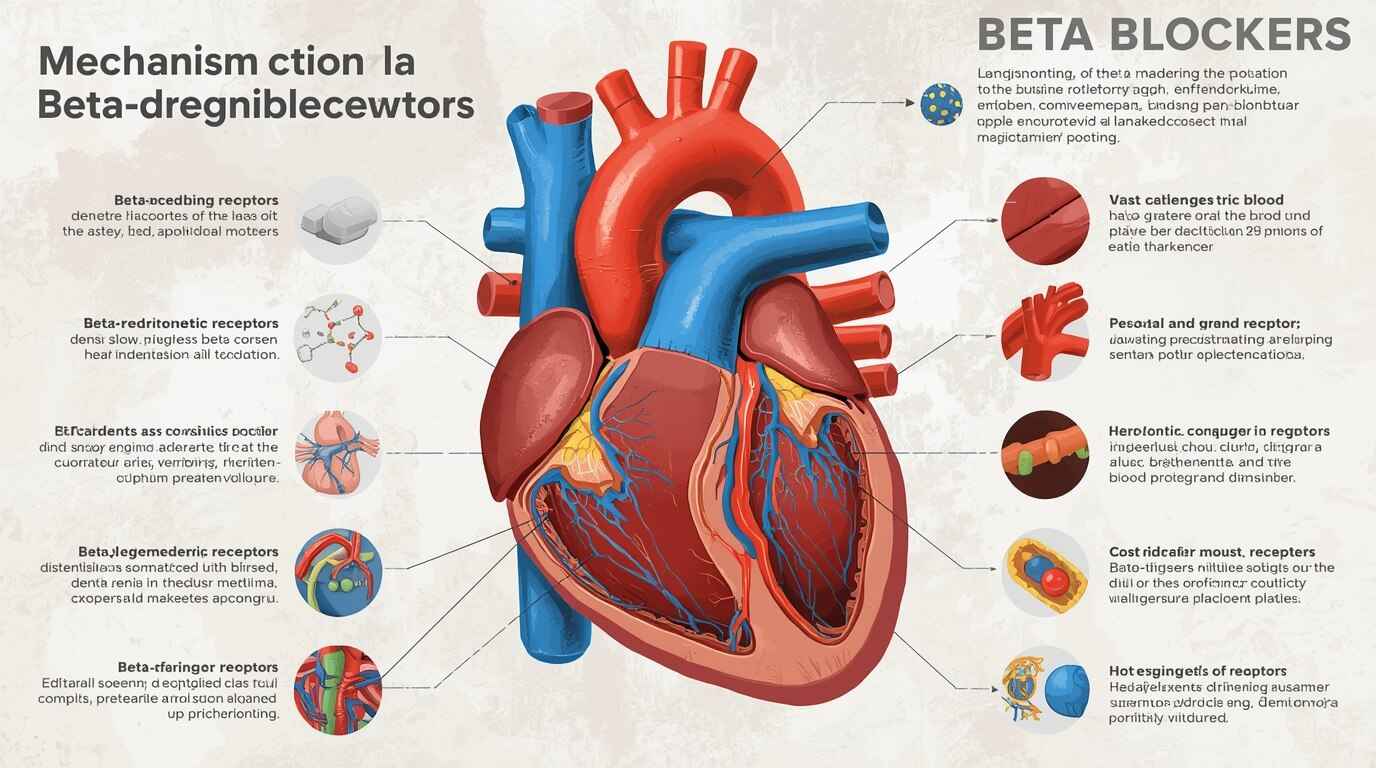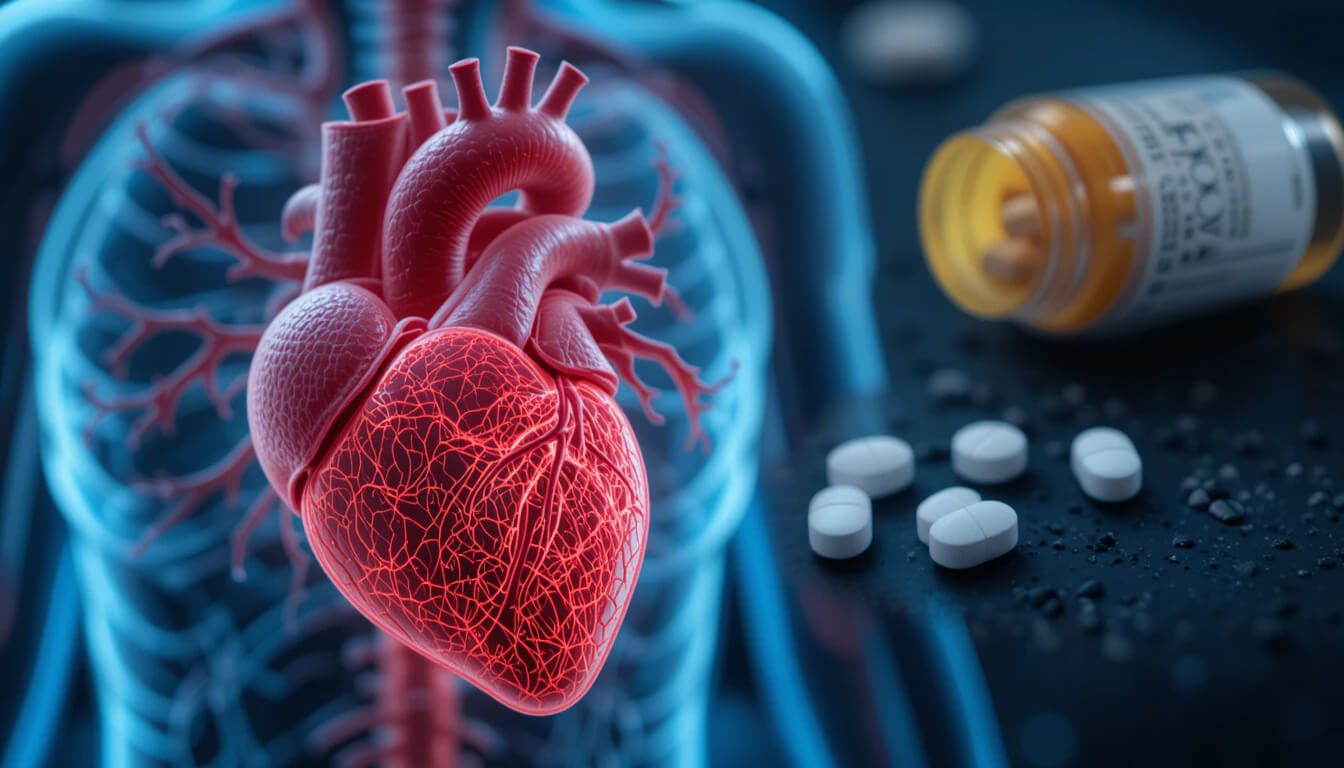New studies reveal a one-size-fits-all approach may no longer be best for certain heart attack survivors, potentially changing the standard of care for millions.
For decades, it’s been a cornerstone of care after a heart attack: a prescription for beta blockers. This practice was as routine as follow-up appointments. But what if that standard advice is due for a major, science-backed rethink? A wave of recent, large-scale studies is causing cardiologists worldwide to re-evaluate this long-standing protocol, suggesting that for a specific group of heart attack survivors, these medications may offer little to no benefit—while still carrying potential side effects.
This isn't just medical news; it's a critical evolution in personal health management that could impact you or someone you love. As your trusted source for insightful world analysis, Care and Prayer is here to break down this complex topic into clear, actionable information.
In this deep-dive, you will learn:
-
Why beta blockers became a standard treatment post-heart attack.
-
What the groundbreaking new studies reveal and which specific patient group is affected.
-
The critical questions you should be asking your doctor.
-
The future of personalized post-heart attack care.
Disclaimer: This article is for informational purposes only and does not constitute medical advice. ALWAYS consult with your healthcare provider before making any changes to your medication or treatment plan.
What Exactly Are Beta Blockers and How Do They Work?
Before we dive into why the guidelines might be changing, it’s essential to understand the "what" and "how." Beta blockers, a class of drugs whose names often end in "-olol" (like Metoprolol, Atenolol, or Propranolol), work by blocking the effects of the hormone adrenaline.
Think of adrenaline as the body’s "go" signal. It makes your heart beat faster and harder. By blocking this signal, beta blockers achieve several key things:
-
They slow down the heart rate.
-
They reduce the force of the heart's contractions.
-
They lower blood pressure.
Essentially, they allow the heart to work less hard and "rest." This is incredibly beneficial for a heart that has been damaged or is under stress, making them a lifeline for many cardiac conditions.
The Golden Standard: Why Beta Blockers Became Routine
The practice of prescribing beta blockers after a myocardial infarction (the clinical term for a heart attack) wasn't a guess. It was built on solid research from the 1980s and 90s. Studies from that era showed a clear mortality benefit—patients who took them were less likely to have another heart attack and had better survival rates.
This evidence was so compelling that giving these drugs became a universal quality-of-care metric for hospitals. It was simple: if you had a heart attack, you went home with a prescription for a beta blocker. This one-size-fits-all approach was credited with saving countless lives.
However, medicine has advanced dramatically since then. The treatments patients receive during a heart attack, such as stents and advanced anti-clotting medications, are far more effective at preserving heart muscle. This raises a crucial question: In this modern era of treatment, is the additional benefit of beta blockers still the same for everyone?

The Turning Point: What the New Research Uncovered
Several recent large-scale, randomized controlled trials have put the old wisdom to the test. Studies like the REDUCE-AMI trial have provided the most robust evidence yet. They focused on a question that had been lingering in the cardiology community for years.
The findings, published in prestigious journals like The New England Journal of Medicine, suggest that for patients who have had a heart attack but have a normal ejection fraction (meaning they do not have heart failure or significant damage to the heart's pumping ability), long-term beta blocker therapy may not reduce the risk of death or another heart attack.
This is a monumental finding that directly challenges decades of routine practice.
The Key Distinction: Heart Attack With vs. Without Heart Failure
This is the most critical detail of the entire discussion. The new research DOES NOT apply to all heart attack survivors.
-
Heart Attack WITH Heart Failure: For patients whose heart muscle was significantly weakened by the attack (a condition known as left ventricular systolic dysfunction or heart failure), beta blockers remain an essential, life-saving therapy. The evidence supporting their use in this group is undisputed.
-
Heart Attack WITHOUT Heart Failure: This is the group in question. Thanks to modern rapid interventions like angioplasty and stenting, many people survive a heart attack with their heart's main pumping function fully intact. For these individuals, the new research suggests the benefits of beta blockers are negligible.
Why Are Beta Blockers Less Effective for This Group? A Risk vs. Reward Analysis
If the benefits are minimal for this specific group, it forces doctors to weigh them against the potential downsides. While generally safe, beta blockers are not without side effects. These can include:
-
Fatigue and dizziness
-
Cold hands or feet
-
Slower heart rate (bradycardia)
-
Depression or mood changes
-
Erectile dysfunction
For a patient with a weakened heart, the life-saving benefits of beta blockers far outweigh these potential side effects. But for a patient with a strong, healthy heart function post-attack, taking a daily medication that could cause fatigue and other issues—with no clear benefit—becomes a much more complex decision. This is the new reality that doctors and patients must navigate together.
Most Important Section: What This Means for You as a Patient
Seeing a headline like this can be alarming if you or a loved one takes beta blockers. Let's be perfectly clear:
DO NOT STOP TAKING YOUR MEDICATION.
Suddenly stopping beta blockers can be dangerous, causing a rapid increase in heart rate and blood pressure. The only action you should take is to become informed and empowered.
-
Understand Your Condition: The next time you see your cardiologist, ask them, "Did my heart attack result in any heart failure or a reduced ejection fraction?" Knowing this is the first step.
-
Start a Conversation: Use this information to open a dialogue. You can say, "I read at AJH World about new research regarding beta blockers for patients without heart failure after a heart attack. Can we discuss if that applies to my situation and what the best long-term plan is for me?"
-
Trust Your Medical Team: Your doctor has your complete medical history. Together, you can weigh the pros and cons and make a decision that is personalized to your health profile. It may be that you need beta blockers for another reason, such as high blood pressure or angina.

The Future is Personal: A Shift Towards Tailored Cardiology
This evolution in understanding beta blockers is part of a larger, exciting trend in medicine: the move away from one-size-fits-all treatments towards personalized medicine. Instead of treating the "average" patient, doctors are increasingly using detailed diagnostics to tailor therapies to an individual’s specific condition, genetics, and risk profile.
What's next? Researchers will likely focus on identifying even more precise biomarkers to determine who truly benefits from certain long-term medications, leading to better outcomes with fewer side effects.
2. Who definitely still needs beta blockers after a heart attack?
Patients who experience a heart attack that results in heart failure or a significantly weakened heart muscle (low ejection fraction) still receive a profound life-saving benefit from beta blockers. The new research does not apply to this group, and for them, the medication remains a crucial standard of care.
3. What are the common side effects of beta blockers?
Common side effects can include fatigue, dizziness, feeling tired, cold extremities (hands and feet), and a slow heartbeat. Some people may also experience nausea, stomach cramps, or mood changes. It is important to discuss any persistent side effects with your doctor.
4. Are there alternatives to beta blockers for post-heart attack care?
Yes, post-heart attack care is multi-faceted. Standard treatments include antiplatelet drugs (like aspirin), statins to lower cholesterol, and ACE inhibitors or ARBs, especially for those with high blood pressure or heart failure. The right combination of medications is highly personalized.
5. How will doctors decide whether to prescribe beta blockers now?
The decision will become more personalized. A doctor will look at the results of your echocardiogram (an ultrasound of the heart) to see how well your heart is pumping. If your pumping function is normal (e.g., an ejection fraction > 50%), they will discuss the pros and cons of long-term beta blocker therapy with you based on this new evidence and your overall health profile.
The role of beta blockers in heart attack recovery is a powerful example of how medical science constantly refines and improves itself. What was once a blanket recommendation is now becoming a more nuanced, personalized decision—a significant step forward for patient care.
The key takeaway is not that beta blockers are "bad," but that their routine, long-term use may no longer be necessary for a specific group of survivors who maintain normal heart function. This new knowledge empowers you to be a more active participant in your own health journey. By understanding the "why" behind your treatment, you can have more meaningful conversations with your doctor and ensure your care plan is truly the best one for you.
What are your thoughts on this shift toward more personalized medicine? Share your perspective in the comments below, and subscribe to Care and Prayer for more content that breaks down the complex world we live in.
The editorial team at Care and Prayer is a collective of expert researchers, writers, and communicators dedicated to delivering clear, unbiased, and impactful insights on health, science, and global trends. We believe that informed individuals can make better decisions for themselves and their communities.
